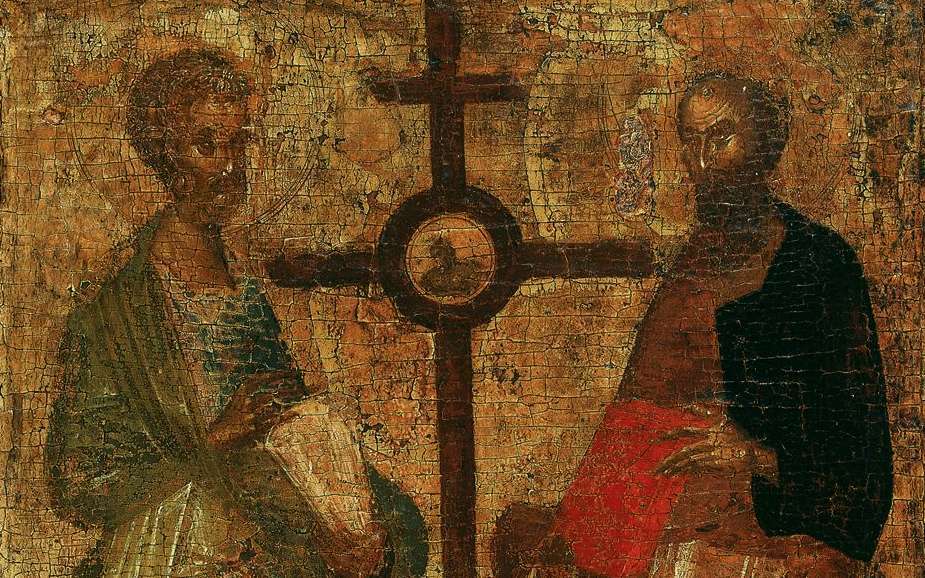
Paul the Apostle, originally known as Saul of Tarsus, was a pivotal figure in early Christianity, profoundly influencing its spread beyond the Jewish communities to a broader audience. Born around 5 AD and passing away approximately in 67 AD, Paul’s life and teachings significantly contributed to the development and dissemination of Christian doctrine, particularly among Gentiles, shaping the faith’s future direction and structure. His epistles form a substantial part of the New Testament, reflecting his theological insights and practical instructions for Christian communities.
Early Life and Conversion
Paul, born Saul, hailed from Tarsus in Cilicia, a region in modern-day Turkey. As a Pharisee and a Roman citizen, he initially fervently opposed the Christian movement. His dramatic conversion on the road to Damascus, where he experienced a profound spiritual awakening, marked a pivotal turn in his life. This transformative event, often cited as a cornerstone in Christian theology, led to his renaming as Paul and ignited his unwavering commitment to Christ’s teachings.
From a zealous persecutor, Paul became an ardent apostle. His intellectual background, combined with his Roman citizenship, uniquely positioned him to spread Christianity beyond its Jewish roots. His missionary journeys, chronicled in the Acts of the Apostles, highlight his dedication to evangelizing Gentile communities.
Paul’s approach to preaching was both revolutionary and inclusive, advocating for a version of Christianity accessible to all, irrespective of cultural or religious backgrounds. This inclusivity, while causing friction with traditional Jewish Christians, was instrumental in transforming Christianity into a universal faith.
Moreover, Paul’s epistles, a significant portion of the New Testament, offer deep insights into his theology. These letters, addressing various early Christian communities, not only guided their spiritual growth but also laid foundational doctrines that continue to resonate within Christian teachings. Through his writings, Paul emphasized themes like redemption, grace, and the importance of faith in Jesus Christ, thereby shaping Christian thought for centuries.
Paul’s journey from a fervent opponent to a foundational pillar of Christianity exemplifies a radical transformation, underscoring the profound impact of personal faith and conviction in one’s life path. His legacy, enshrined in his epistles and missionary work, continues to be a source of inspiration and guidance in Christian theology and practice.

Missionary Journeys and Theological Contributions
Paul’s missionary journeys, spanning from Asia Minor to Europe, were crucial in establishing Christian communities across the Roman Empire. His first journey, commencing around 46 AD, took him through Cyprus and Galatia. Subsequent missions saw him traversing regions such as Macedonia, Athens, and Corinth, spreading the Christian message and establishing churches. These travels were not without hardship; Paul faced opposition, imprisonment, and even shipwrecks, yet his resolve never wavered.
Central to Paul’s teaching was the concept of salvation through faith in Jesus Christ, a message that resonated with diverse audiences. His ability to articulate complex theological concepts in a relatable manner enabled him to connect with people from various backgrounds. Moreover, Paul’s emphasis on ethical living and the transformation of personal character highlighted the practical implications of Christian belief.
The Apostle’s impact extended beyond his lifetime through his epistles. These letters, addressing issues such as church organization, moral conduct, and doctrinal controversies, provided guidance and instruction to early Christian communities. His theological reflections, especially on topics like justification by faith and the role of the Law, have been foundational in shaping Christian doctrine.
Paul the Apostle’s influence on Christianity is immeasurable. His theological insights, missionary zeal, and writings significantly shaped the early Church’s development and its spread across the Gentile world. Paul’s life, marked by conversion, perseverance, and dedication, continues to inspire and guide Christians globally.
Feast Day: June 29 (shared with Saint Peter)
Patron Saint: Missionaries, Theologians, Gentile Christians
References
- Gumberg Library. “Saint Paul the Apostle.” Accessed December 26, 2023.
- Hengel, Martin. Paul Between Jerusalem and Antioch.” SCM Press, 1997.
- Biblical Archaeology Society. “The Quest for the Historical Paul.” Accessed December 26, 2023.
- Johnson, Luke Timothy. “The Writings of the New Testament: An Interpretation.” Fortress Press, 2010.
- Religious Studies Center, BYU. “The Life of the Apostle Paul.” Accessed December 26, 2023.
- Sanders, E.P. “Paul and Palestinian Judaism.” Fortress Press, 1977.
- Stendahl, Krister. “Paul Among Jews and Gentiles.” Fortress Press, 1976.
- Wright, N.T. “Paul: A Biography.” HarperOne, 2018.
- World History Encyclopedia. “Paul the Apostle.” Accessed December 26, 2023.
